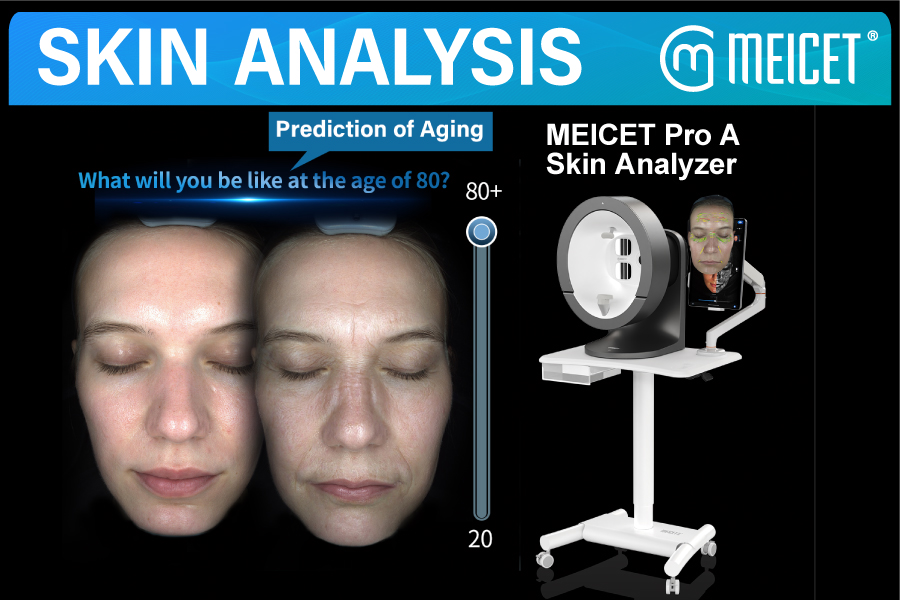Of all the organs in the human body, the skin is perhaps the most visible yet complex to understand. For centuries, understanding its condition relied on the trained but subjective eye of a specialist, combined with personal anecdote. Today, a profound transformation is underway, driven by the integration of artificial intelligence. The emergence of the AI Skin Analyzer represents a paradigm shift, moving skincare from a realm of general observation into one of hyper-personalized, data-driven precision. This technology is not merely an incremental improvement; it is redefining the very foundations of dermatology and cosmetic care.
At its core, an AI Skin Analyzer functions as a sophisticated diagnostic partner. It typically begins with high-resolution imaging, capturing pictures of the skin under various lighting conditions, including standard, cross-polarized, and UV light. This multi-spectral approach allows the system to see beyond the surface, revealing underlying concerns like subcutaneous pigmentation, vascular issues, and sun damage that are invisible to the naked eye. However, the true revolution lies in what happens next. This vast amount of visual data is not for human interpretation alone. Instead, it is processed by complex machine learning algorithms.
These algorithms are the brain of the operation. They have been trained on millions of skin images, meticulously labeled by dermatologists for a vast array of conditions—from common concerns like wrinkles, pores, and redness to more specific signs of conditions like hyperpigmentation or early-stage acne. Through this training, the AI Skin Analyzer learns to recognize patterns and correlations with a level of speed and accuracy that surpasses human capability. It can detect subtle changes in texture, differentiate between types of spots, and quantify the severity of concerns with remarkable objectivity, removing human bias from the initial assessment.
The output of this analysis is a comprehensive and easy-to-understand skin health report. Rather than a simple description, it provides a quantifiable baseline. It can assign a “score” to various aspects of skin health, track the percentage of UV spots, or map the intensity of redness across the face. This creates a powerful tool for both professionals and consumers. For dermatologists and aestheticians, an AI Skin Analyzer serves as an invaluable aid in clinical decision-making. It provides concrete evidence to support a diagnosis, helps in crafting highly tailored treatment plans, and objectively tracks the efficacy of interventions over time, be it a prescription cream, a laser treatment, or a new skincare product.
For the consumer, the impact is equally significant. This technology demystifies skincare. Instead of guessing which product to buy based on marketing claims, individuals can receive personalized recommendations directly linked to their skin’s unique data. Mobile applications powered by AI analysis allow people to monitor their skin’s journey from home, fostering a proactive rather than reactive approach to skin health. This empowerment leads to better-informed choices, increased adherence to treatment plans, and ultimately, more effective outcomes.
Looking forward, the potential of the AI Skin Analyzer continues to expand. Future iterations will likely move beyond static images to analyze dynamic properties like skin elasticity and hydration levels. Deeper integration with genetic testing could provide a holistic view of one’s skin predispositions and how they interact with environmental factors. The goal is a fully integrated, predictive model of skin health that can forecast aging patterns and recommend preventative measures long before signs become visible.
In conclusion, the integration of artificial intelligence into skin analysis marks the end of one-size-fits-all skincare. The AI Skin Analyzer is at the forefront of this shift, offering an unprecedented window into the skin’s microstructure and health. By providing objective, detailed, and actionable insights, this technology is empowering professionals to practice with greater precision and enabling individuals to become active participants in their own skin health journey. It is a testament to how technology, when thoughtfully applied, can enhance our understanding of ourselves and lead to smarter, more effective, and truly personalized care.
by Irina
Post time: Aug-20-2025










